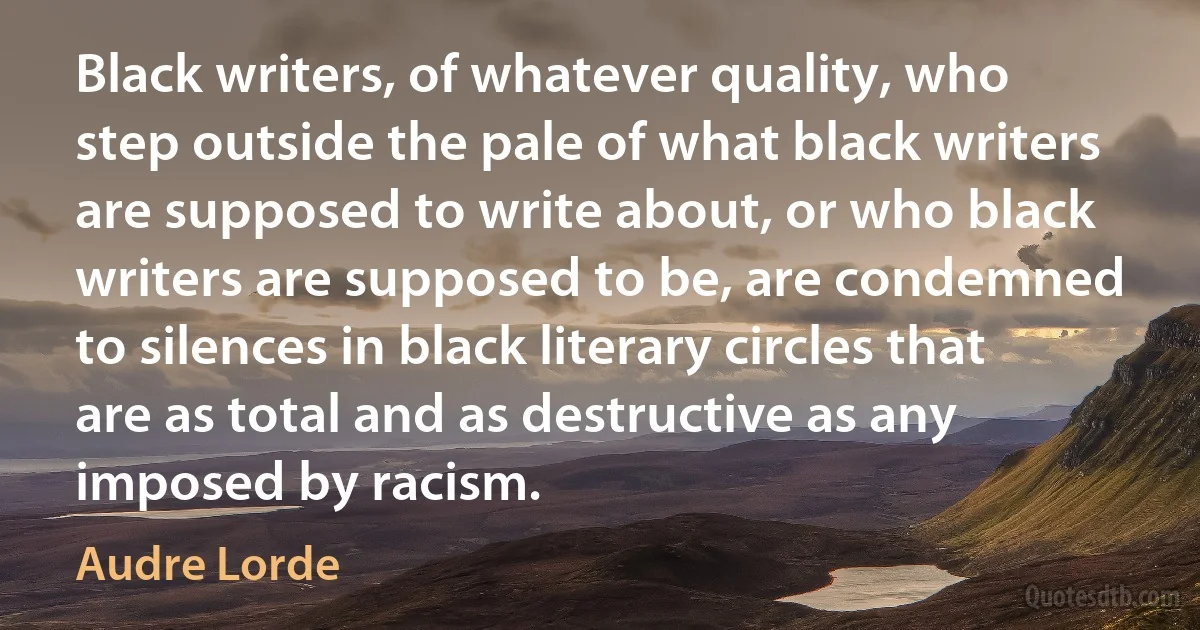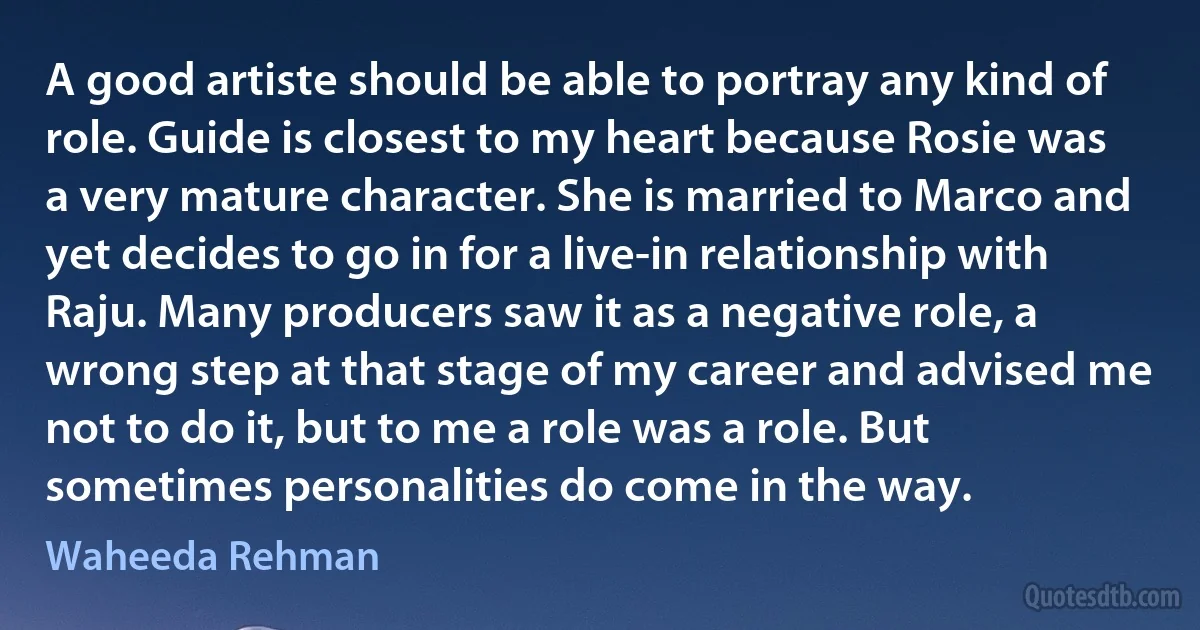Step Quotes - page 43
The second point which must be part of the national goal, is caste less society. The constitution very clearly differentiates between Schedule Castes and Backward Classes. Why did out our Constitution makers make this distinction? They had something in their mind. Why have we lost that distinction today? I agree with you that reality is that caste accounts for a tremendous amount in this country. I do not disagree with that. But what is our goal? Is our goal a castless society? If out goal, is a casteless society, surely every step that we take must be towards that objective.

Rajiv Gandhi
I now wonder that my book could so long, escape the Vigilance of the Guardians of the Public Manners since nothing is truer than that more Clergymen bought it in proportion than any other distinction of men.... The Bishops can take no step to punishing the author that will not powerfully contribute to the notoriety of the book....
a Book I disdain to defend, and wish, from my Soul, buried and forgot.

John Cleland
Vollard, please do not say anything against fashions. Have you ever asked yourself what would happen if there were no fashions? How would women spent their time? What would they have to talk about? Life would become unbearable for us men. Why, if women were to break away from the rules of fashion - fortunately there is no danger - the government would have to step in and take a hand.

Edgar Degas
Looking at the Temple and the Courts and the mountain road that winds below, we see this picture of human evolution, and the track along which the race is treading, and the Temple that is its goal... along that road round the mountain stands a vast mass of human beings, climbing indeed, but climbing so slowly, rising step after step; sometimes it seems as though for every step forward there is a step backward, and though the trend of the whole mass is upwards it mounts so slowly that the pace is scarcely perceptible. And this aeonian evolution of the race, climbing ever upwards, seems so slow and weary and painful that one wonders how the pilgrims have the heart to climb so long...

Annie Besant
There is the first condition, the sine quanon. For the selfish no such advance is possible; for the unselfish such advance is certain. And in whatever life the man begins to think more of the common good than of his own individual gain, whether it be in the service of the town, of the community, of the nation, of the wider joinings of nations together, right up to the service of humanity itself, every one of those is a step towards the Path, and is preparing the man to set his feet thereon.

Annie Besant
We must assume, at least for the time, the existence of certain great facts in Nature. I do not mean that our man of the world, in taking his first step towards the Path, need either know or recognize these facts. Facts in Nature do not change either with our believing or non-believing. Facts of Nature remain facts whether we know them or not, and since we are here in the realm of Nature, and under the order of law, the knowledge of the facts and the knowledge of the law are not essential for the steps which lead man to the Path.

Annie Besant
The species is in a state of transition, one of many. This one began, generally speaking, when the species tried to step apart from nature in order to develop the unique kind of consciousness that is presently your own. That consciousness is not a finished product, however, but one meant to change, [to] evolve and develop. Certain artificial divisions were made along the way that must now be dispensed with. You must return, wiser creatures, to the nature that spawned you - not only as loving caretakers but as partners with the other species of the earth. You must discover once again the spirituality of your biological heritage.

Robert Butts
Projections involve many more aspects of the whole self, and are a mark that the personality is progressing in important ways. The inner senses are allowed their greatest freedom in projection states, and the whole self retains experience that it would not otherwise. When this knowledge becomes part of the usual waking consciousness, that is when you realize what you have done, then you have taken a gigantic step forward. An almost automatic determination must be set up however if projections with conscious awareness are to be anything but rare oddities.

Robert Butts
Every one says: 'Listen, I'd love to reinvest. I'd love to hire people. But I have no idea what this healthcare bill is going to do to my bottom line. I have no idea what this financial reform bill is going to do... I'm not going to step out a limb and do any of those until I know what this government is going to do to me.

Kristi Noem
Today that rarely happens. Most often the songs are used as a relief. They have nothing to do with the film per say. And all look almost the same. Just replace the central characters and a step here and there...choreography remains the same in most cases. So does the beat. We have so many classical dances and folk dances in the country but nobody seems to be using them.

Waheeda Rehman
It is difficult to pronounce on the opinion of the ministers of our Church as a body: one portion of them, by far the least informed, protests against anything which can advance the honour and the interests of science, because, in their limited and mistaken view, science is adverse to religion. This is not the place to argue that great question. It is sufficient to remark, that the best-informed and most enlightened men of all creeds and pursuits, agree that truth can never damage truth, and that every truth is allied indissolubly by chains more or less circuitous with all other truths; whilst error, at every step we make in its diffusion, becomes not only wider apart and more discordant from all truths, but has also the additional chance of destruction from all rival errors.

Charles Babbage
There are two ways of considering society. According to some, the development of human associations is not subject to providential, unchangeable laws. Rather, these associations, having originally been organized in a purely artificial manner by primeval legislators, can later be modified or remade by other legislators, in step with the progress of social science. In this system the government plays a preeminent role, because it is upon it, the custodian of the principle of authority, that the daily task of modifying and remaking society devolves.According to others, on the contrary, society is a purely natural fact. Like the earth on which it stands, society moves in accordance with general, preexisting laws. In this system, there is no such thing, strictly speaking, as social science; there is only economic science, which studies the natural organism of society and shows how this organism functions.

Gustave de Molinari



